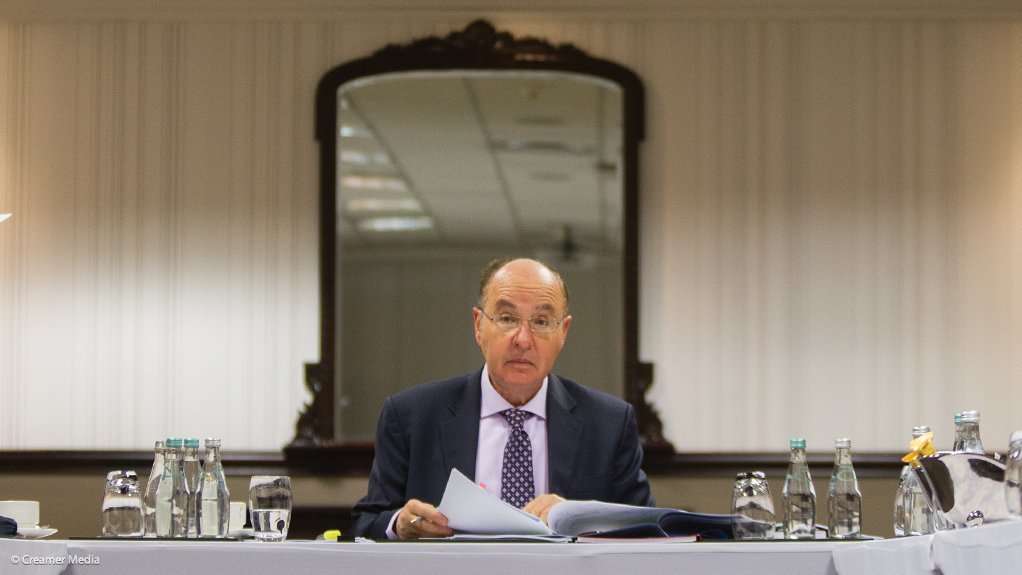CAPE TOWN (miningweekly.com) – South Africa’s Minerals Minister Mosebenzi Zwane has been urged to withdraw the Mineral and Petroleum Resources Development Act (MPRDA) Amendment Bill and to make a new legislative start that embraces the African Mining Vision and the Chilean model.
Speaking at a media conference ahead of the Investing in African Mining Indaba in Cape Town, Herbert Smith Freehills partner and Africa practice co-chair Peter Leon said the Minister should also conduct meaningful discussions with the Chamber of Mines (CoM) on Mining Charter Three, warning that failing to do so and simply publishing a new charter without further discussions would be a “very bad mistake”.
At the same conference, CoM president Mike Teke called on Zwane to provide regulatory certainty through discussion and Cadiz Corporate Solutions mining head Peter Major urged the Minister to focus on jobs and all else would look after itself, as Chile had shown.
Although, as a member of the African Union, South Africa had signed up to the African Mining Vision’s many excellent aspects of promoting good governance, implementing best practice and building institutional capacity, Leon criticised South Africa’s lack of implementation of the vision.
In response to Mining Weekly Online, the former politician said he also saw no reason why South Africa, with its well rated Budget transparency, should not also embrace the Extractive Industries Transparency Initiative, as many other African countries had done in the interests of financial openness.
Major urged Zwane to set the creation of employment as his single objective and not to be sidetracked by a multiplicity of goals.
He pointed out that even through South Africa still had 50% of the world’s known gold resources, the country was making less money out of gold today than it did in the 1940s.
The country had fallen from a total of 600 000 well-trained gold miners with opportunities for advancement to 120 000 gold miners and falling.
When there were 600 000 gold miners in 1988, South Africa had four-million unemployed people, a number that has more than doubled to eight-million-plus unemployed people, despite the far higher gold-price environment.
Although the gold price from 1932 to 1972 was a constant $35/oz, the gold mining industry managed in that time to double employment, triple production and put the rest of the world out of business.
But now, while the rest of the world loves the much higher gold price, South Africa, with half the world’s gold, does not, which is why it is closing its mines and retrenching hard-working, well-paid people.
The rest of the world is now producing more than 3 000 t of gold a year to South Africa’s 150 t, which Major forecast would be down to 50 t in the next five years.
While both the Democratic Republic of Congo and Zambia have got more out of copper by changing their policy in recent years, Chile turbocharged its policies and today produces more in copper than all the precious metals, diamonds, steel and base metals produced by South Africa – and it does so with a population less than a third of the size.
Chile, he said, had achieved this by focusing on one goal – job creation – and that in Major’s view should be the Minister’s sole focus.
Leon praised Chile’s mining code as being among the world’s best owing to the absence of regulatory discretion and licences effectively being granted by administrative judges.
Teke urged the Minister to support South Africa’s mining industry in a way that prevented it from missing its next upturn.
Legislative uncertainty has prevailed in the period that three Ministers have presided over the passage of the MPRDA through Parliament, preventing South Africa from being competitive when compared with other mining jurisdictions.
Teke urged the Minister to accelerate the completion of the consultation process on the revised charter for an industry not averse to a regulated environment.
EMAIL THIS ARTICLE SAVE THIS ARTICLE ARTICLE ENQUIRY
To subscribe email subscriptions@creamermedia.co.za or click here
To advertise email advertising@creamermedia.co.za or click here











